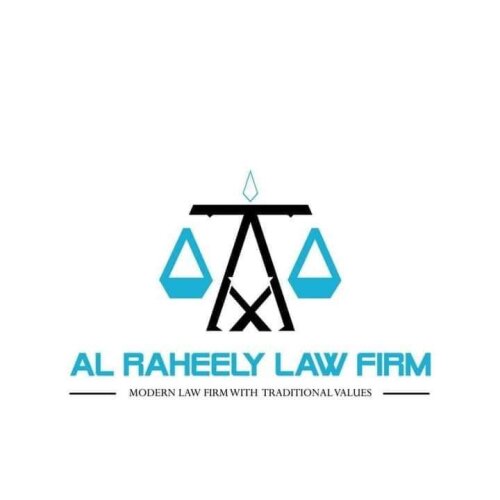Best Tax Increment Financing Lawyers in Cairo
Share your needs with us, get contacted by law firms.
Free. Takes 2 min.
List of the best lawyers in Cairo, Egypt
About Tax Increment Financing Law in Cairo, Egypt
Tax Increment Financing (TIF) is a public financing method that is used to subsidize infrastructure and other community-improvement projects through the future gains in taxes. In Cairo, Egypt, TIF can be an essential tool for urban development and the rejuvenation of areas requiring revitalization. It involves the capture of additional tax revenue generated by the increase in property values resulting from improvements. These funds are then used to finance the improvement projects within a designated area or zone. The application and management of TIF in Cairo follow specific local regulations and require a structured approach, often coordinated by government entities and local authorities.
Why You May Need a Lawyer
There are several scenarios where you might need a legal expert in TIF:
- Understanding Compliance: Navigating the complexity of TIF laws and ensuring compliance with local regulations can be challenging.
- Drafting Agreements: Legal expertise is crucial in drafting agreements related to TIF projects to ensure that all parties' rights and obligations are clearly defined and protected.
- Litigation and Dispute Resolution: If disputes arise between stakeholders or between the government and developers, legal assistance may be necessary to resolve issues efficiently.
- Strategic Planning: Lawyers can provide valuable insights during the planning phase to maximize financial and legal outcomes of TIF projects.
- Public-Private Partnerships: Legal guidance might be required to negotiate and structure partnerships between public entities and private developers.
Local Laws Overview
Cairo has specific laws governing the implementation and management of TIF projects. Key aspects include:
- Designated Zones: TIF is only applicable in designated zones approved by appropriate governmental bodies.
- Project Eligibility: There are criteria that projects must meet to qualify for TIF funding, generally tied to public benefit and economic development.
- Financing Guidelines: Clear guidelines dictate how the revenues from increased tax increments are calculated and utilized.
- Transparency and Reporting: Regular reporting and transparency are required to ensure accountability in the use of TIF-generated funds.
Frequently Asked Questions
What is the purpose of Tax Increment Financing?
Tax Increment Financing is used to finance public infrastructure improvements that are expected to lead to increased property values and, consequently, higher tax revenues.
Who can initiate a TIF project?
TIF projects are typically initiated by local government authorities or a designated development agency in partnership with private developers.
How long can a TIF district remain active?
The duration of a TIF district is usually defined by law, and in Cairo, it may vary depending on the scope and nature of the project.
What kind of projects are eligible for TIF?
Projects that generally qualify include those that contribute to economic development, such as improving infrastructure, housing, and commercial areas.
Can TIF funds be used for operational costs?
No, TIF funds are typically designated for capital improvements and infrastructure-related expenses, not for operational costs.
Are there any risks associated with TIF?
Yes, including financial risks if anticipated tax increments do not materialize, and legal or political risks related to project approval and compliance.
How are TIF funds generated?
TIF funds come from additional taxes generated by the increased property values within a designated district as a result of implemented improvements.
Do TIF laws vary within different parts of Egypt?
Yes, while there is an overarching framework, local regulations and requirements may vary, particularly in major urban areas like Cairo.
Can homeowners within a TIF district face increased taxes?
Homeowners may see an increase in property taxes, but often the taxes are used directly to benefit their area through improvements and services.
How can I find out if my property is in a TIF district?
You can contact the local planning department or check local government resources to determine if your property is within a TIF district.
Additional Resources
For more information or assistance regarding TIF in Cairo, you may consider the following resources:
- Local Government Offices: Cairo Governorate has departments that oversee urban development and financing initiatives.
- Egyptian Ministry of Housing, Utilities, and Urban Communities: Provides guidelines and policy frameworks about urban development projects.
- Legal Associations: Local legal associations can provide referrals to lawyers specializing in TIF.
- Urban Development Agencies: Agencies involved in planning and monitoring urban development projects.
Next Steps
If you require legal assistance with TIF projects in Cairo, consider taking the following steps:
- Consult Legal Experts: Seek a consultation with lawyers who have experience in tax increment financing and urban development law in Cairo.
- Research and Prepare: Gather all necessary documentation and have a clear understanding of your project’s scope and objectives.
- Engage with Local Authorities: Contact the relevant local government departments to understand procedural requirements and approval processes.
- Explore Partnerships: Consider forming partnerships with developers or public bodies for better strategic alignment and resource utilization.
Lawzana helps you find the best lawyers and law firms in Cairo through a curated and pre-screened list of qualified legal professionals. Our platform offers rankings and detailed profiles of attorneys and law firms, allowing you to compare based on practice areas, including Tax Increment Financing, experience, and client feedback.
Each profile includes a description of the firm's areas of practice, client reviews, team members and partners, year of establishment, spoken languages, office locations, contact information, social media presence, and any published articles or resources. Most firms on our platform speak English and are experienced in both local and international legal matters.
Get a quote from top-rated law firms in Cairo, Egypt — quickly, securely, and without unnecessary hassle.
Disclaimer:
The information provided on this page is for general informational purposes only and does not constitute legal advice. While we strive to ensure the accuracy and relevance of the content, legal information may change over time, and interpretations of the law can vary. You should always consult with a qualified legal professional for advice specific to your situation.
We disclaim all liability for actions taken or not taken based on the content of this page. If you believe any information is incorrect or outdated, please contact us, and we will review and update it where appropriate.















